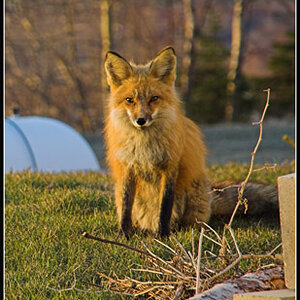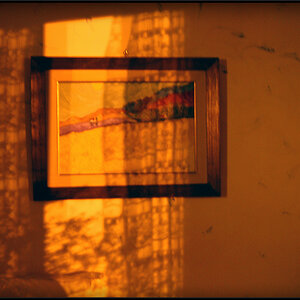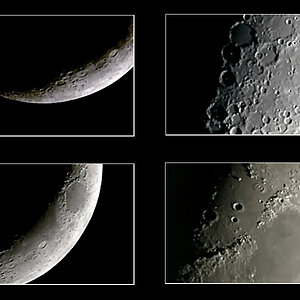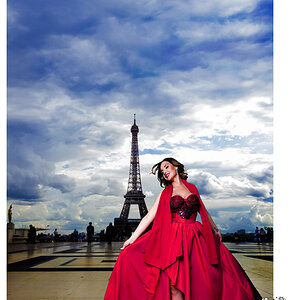ksmattfish
Now 100% DC - not as cool as I once was, but still
- Joined
- Aug 25, 2003
- Messages
- 7,019
- Reaction score
- 36
- Location
- Lawrence, KS
- Website
- www.henrypeach.com
- Can others edit my Photos
- Photos NOT OK to edit
This idea started in another thread, but I didn't want to hijack that one. What happens when motion photography technology catches up to still photography? I mean when you can take a single frame from a digital camcorder recording, and it's high enough resolution to make good enlargements from.
For news and sports photography wouldn't it make sense to just keep "filming", and pick out the best shots later? Most of the sports photogs are already armed with cameras that'll do 5+ fps. In the other thread I used the examples of vacation and family event photography (birthday parties, etc...) . A couple could shoot continuously during their entire Hawaian vacation, and then have a pro with a good eye sort out some stills for their scrap books.
I think this is the way a lot of photography is going to go when the technology allows us high resolution, effectively unlimited memory space, ultra-miniaturization, low light capabilities, and super long lasting batteries. Then the debate won't be film vs. digital, but about equipment choice none the less (still vs. motion gear).
In the year 2025, when Canon announces the 999D, I'll still be clunking along with my Rolleiflex, shooting at 1 frame per 5 or 10 seconds (or lots slower!), and waiting a week or two to see my photos. Luddites unite!
Edit: Now that I think about it, when I look at the old photo mags (from the 60s and 70s (I didn't get them new ldman: ) stacked by my toilet they cover both motion and still photography. So maybe it's just coming around again?
ldman: ) stacked by my toilet they cover both motion and still photography. So maybe it's just coming around again?
For news and sports photography wouldn't it make sense to just keep "filming", and pick out the best shots later? Most of the sports photogs are already armed with cameras that'll do 5+ fps. In the other thread I used the examples of vacation and family event photography (birthday parties, etc...) . A couple could shoot continuously during their entire Hawaian vacation, and then have a pro with a good eye sort out some stills for their scrap books.
I think this is the way a lot of photography is going to go when the technology allows us high resolution, effectively unlimited memory space, ultra-miniaturization, low light capabilities, and super long lasting batteries. Then the debate won't be film vs. digital, but about equipment choice none the less (still vs. motion gear).
In the year 2025, when Canon announces the 999D, I'll still be clunking along with my Rolleiflex, shooting at 1 frame per 5 or 10 seconds (or lots slower!), and waiting a week or two to see my photos. Luddites unite!
Edit: Now that I think about it, when I look at the old photo mags (from the 60s and 70s (I didn't get them new






![[No title]](/data/xfmg/thumbnail/36/36396-f8e84def7352af726df923054b86284f.jpg?1619737549)






